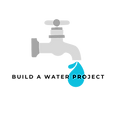Water Diversity: Exploring Characteristics of Water Types
- Asiya Siddiqui
- Apr 21, 2025
- 3 min read
Water Diversity
Are there different types of water? Most of the different “types” of water that you see at your local grocery store were not inherently different from each other until they were treated due to human activity through various processes, whether intentionally or unintentionally. This diversity in water types raises the question of the advantages or disadvantages of each type of water and whether there is a generic list of order in which they can be ranked in terms of health for the body.

Sparkling Water
Here comes your favorite “healthy” carbonated drink. But the fact that it is carbonated at all can be worrying, as there is the possibility that it will erode someone’s teeth’s enamel. Numerous health experts have researched this exact problem, and the consensus is that although it is only slightly more corrosive than water with a pH of 7 (while carbonated drinks have a pH of 5.25), it is only slightly more acidic and therefore not a terrible alternative to water [1]. In fact, it can be a great alternative to its carbonated siblings like soda so that people can gradually wean off these unhealthy drinks.
Tap Water
Many are ok with the idea of drinking tap water as a main source of hydration, and while it gets the job done (and acts as a cheaper alternative to other types of water), it is undeniably less healthy than other options. Due to a main water system that is generally spread out to many families in various large neighborhoods that is also used for a variety of other usages, there are commonly unhealthy minerals that are carried into the water through the pipes - such as chlorine, lead, and pesticides – that can negatively a person’s health over time. A large number of viruses/germs may be present in the tap water as well due to ineffective water filtration systems, such as cryptosporidium, norovirus, and salmonella [3]. Make sure you drink from a filtered source of water for a healthy lifestyle.
Mineral Water
Mineral water (unsurprisingly) is rich in minerals, which are essential for a healthy lifestyle. They are often not chemically treated and bottled from the source, which also brings a unique flavor that many people prefer. However, this also comes with the side effect of generally being more expensive than any other type of water. As of 2024, Americans consumed 16.2 billion gallons of water, a 2% increase from 2023, with the percentage of that number being only pure water (not carbonated/flavored water) steadily increasing from the last 20 years [2]. This indicates a strong correlation of Americans of recent years to become more inclined towards the healthier option, which may represent a shift in the dynamic of American attitudes towards hydration, towards drinking more mineral water due to its healthier effects despite its expense.
Conclusion
With diverse different types of water bringing various advantages and disadvantages with them, it can be hard to choose the right balance between health, expense, and convenience while considering methods of hydration. But one should always prioritize one’s health above all, and usually, just plain water can beat any other form of beverage. So drop those soda cans and pick up a water bottle.
Support our cause!
References
1. Ask the Doctors - Is sparkling water bad for your bones and teeth. (2018, May 17). Uclahealth.org; UCLA Health. https://www.uclahealth.org/news/article/ask-the-doctors-is-sparkling-water-bad-for-your-teeth
2. Bottled Water Consumption Shift - Bottled Water | IBWA | Bottled Water. (n.d.). Bottledwater.org. https://bottledwater.org/bottled-water-consumption-shift/
3. CDC. (2024, July 31). What Causes Tap Water Contamination. Drinking Water. https://www.cdc.gov/drinking-water/causes/index.html
.png)



Comments